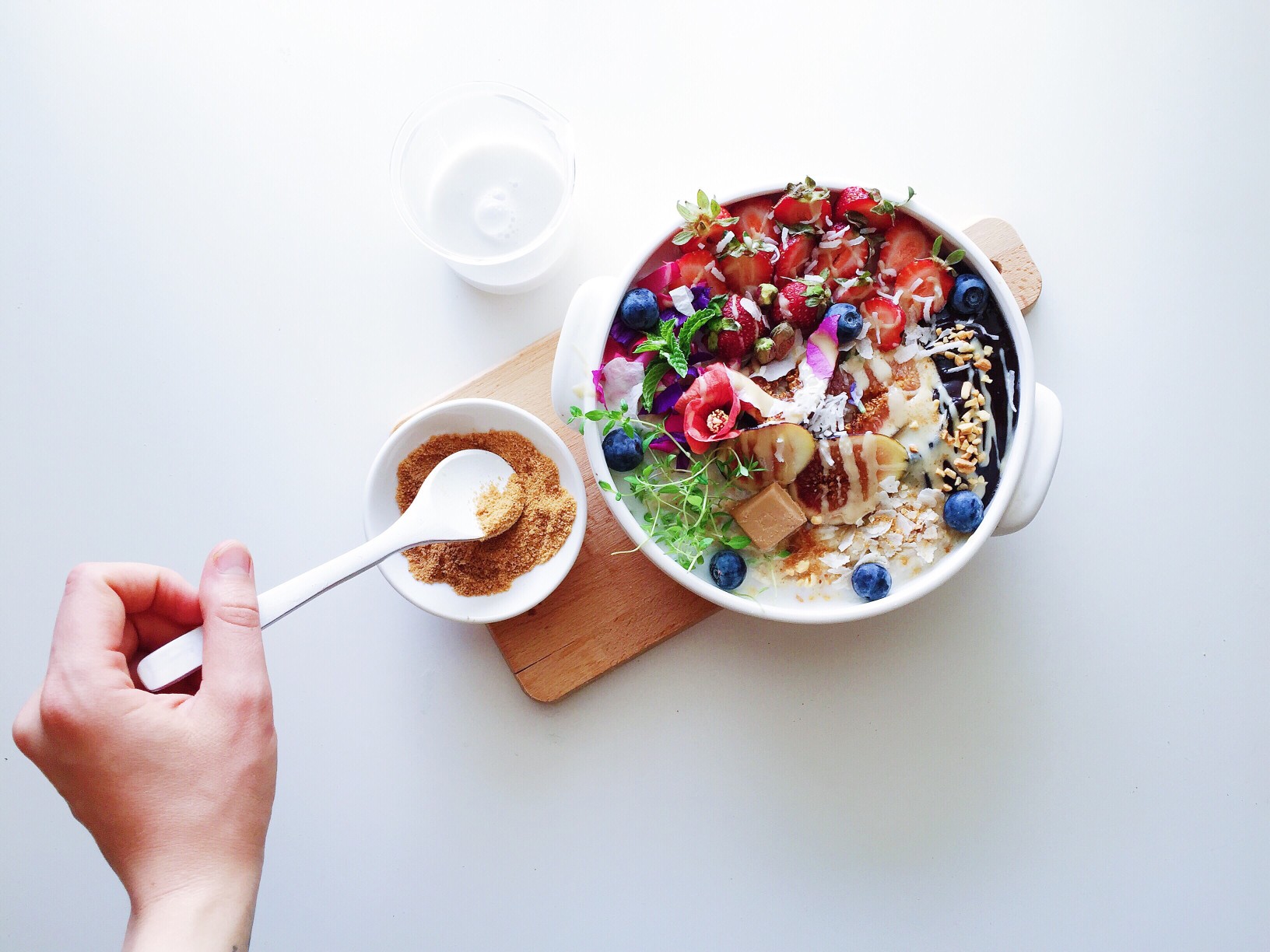
Ever wondered what’s behind the rise of kombucha, kimchi, and sauerkraut? Explore the science behind gut microbiomes and discover some ways you may be able to maintain a balanced gut.
Most people think of bacteria as something to avoid, an invading army of germs whose sole purpose is to make us sick. In fact, our intestines alone contain around 100 trillion bacteria, most of which are beneficial. In recent years, scientific research has revealed many links between the bacteria found in our digestive systems and our overall health. Learn all about how important healthy gut bacteria really is, and explore some of the best ways that you can start improving your gut health.
Why are gut bacteria important?
The organisms in your gut are collectively known as the gut microbiome, a kind of internal ecosystem that is believed to have a massive impact on our well-being. There’s mounting evidence to support the idea that gut bacteria play a key role in people’s health and may impact the following conditions:
- Obesity, heart disease, and type 2 diabetes. Gut microbiota may influence metabolic syndrome, a condition linked to obesity, heart disease, and type 2 diabetes.
- Arthritis. Studies have also suggested that imbalanced gut bacteria (dysbiosis) may affect the development of rheumatoid arthritis. However, the authors of this study recommended further studies to fully determine the links between arthritis and gut bacteria.
- Colon cancer. Gut health may also be linked to colon cancer. A recent study found that two types of gut bacteria (Bacteroides fragilis and a particular strain of E. coli) may cause colon cancer. The bacteria are thought to pierce the colon’s protective layer and cover the intestinal lining with microbial colonies. The bacteria then release poisons that damage the DNA of your colon cells, leading to the growth of tumors.
- Inflammatory bowel diseases (e.g., Crohn’s disease and ulcerative colitis). Although research is still in its infancy, recent studies have indicated that gut microbiota may play an important role in the development of certain inflammatory bowel diseases.
- Mental health. The significance of gut bacteria may even extend beyond our physical health. Recent studies have highlighted the potential link between gut bacteria and anxiety/depression, while researchers have also drawn links between autism and abnormal gut microbiota.
As you can see, the gut is connected to just about everything. The next question is obvious: how can we ensure that our gut bacteria is as healthy and balanced as possible?
What are the best foods for gut health?
Diet has an enormous impact on the types of bacteria that can be found inside your body. Of course, before you start radically changing up your diet you should chat with your doctor or dietician about how you can maintain a balanced gut. Here are some ideas to potentially improve your gut health through food:
- Fermented foods. Sauerkraut, kimchi, miso, and kombucha have high levels of lactobacilli, a “friendly” bacteria that’s often used to combat digestive problems. For more information on kombucha—as well as a few other drinks with some big health claims behind them—check out this blog post we put together on some of the trendiest new liquids hitting the market. We also explored the health debate around fermented foods (in particular, pickles) here.
- Whole grains. Studies have shown that whole grains may help to develop beneficial gut bacteria like lactobacilli and bifidobacteria. Try barley, oatmeal, brown rice, or buckwheat to fit more whole grains into your diet.
- Yogurt and yogurt-based drinks. Yogurt is a fermented dairy product. Numerous studies have highlighted the beneficial influence that traditional yogurt may have on intestinal bacteria. It’s important to stick with plain, natural yogurt, rather than the fruity yogurts that may contain additives and sugar. It may not taste the same, but when it comes to your gut health, it’s a far better option.
- Fruit and vegetables. High in fiber, fruit and vegetables may stimulate the growth of healthy microbiota. Some of the best fruits and vegetables to incorporate into your diet include raspberries, lentils, beans, green peas, and broccoli.
- Prebiotics. Consisting mainly of complex carbohydrates or fiber, prebiotics help to fertilize gut bacteria and promote the development of a diverse microbiome. Fruits, vegetables, and whole grains are all considered to be good sources of prebiotics.
- Probiotic supplements. Although they’re no substitute for a balanced diet, probiotic supplements (live microorganisms) are intended to restore the natural balance of your gut bacteria. They are reported to have a variety of health benefits, including the potential to treat diarrhea, inflammatory bowel disease, irritable bowel syndrome, cancer, and gastroenteritis. However, it’s important to note that the benefits of taking probiotics may not extend to adults who are already in good health.
From your digestion to your mood, those tiny microbes might have a really big impact. Now that you’ve got a better understanding of gut health, why not start a microbe party by adding some of these foods into your diet?



